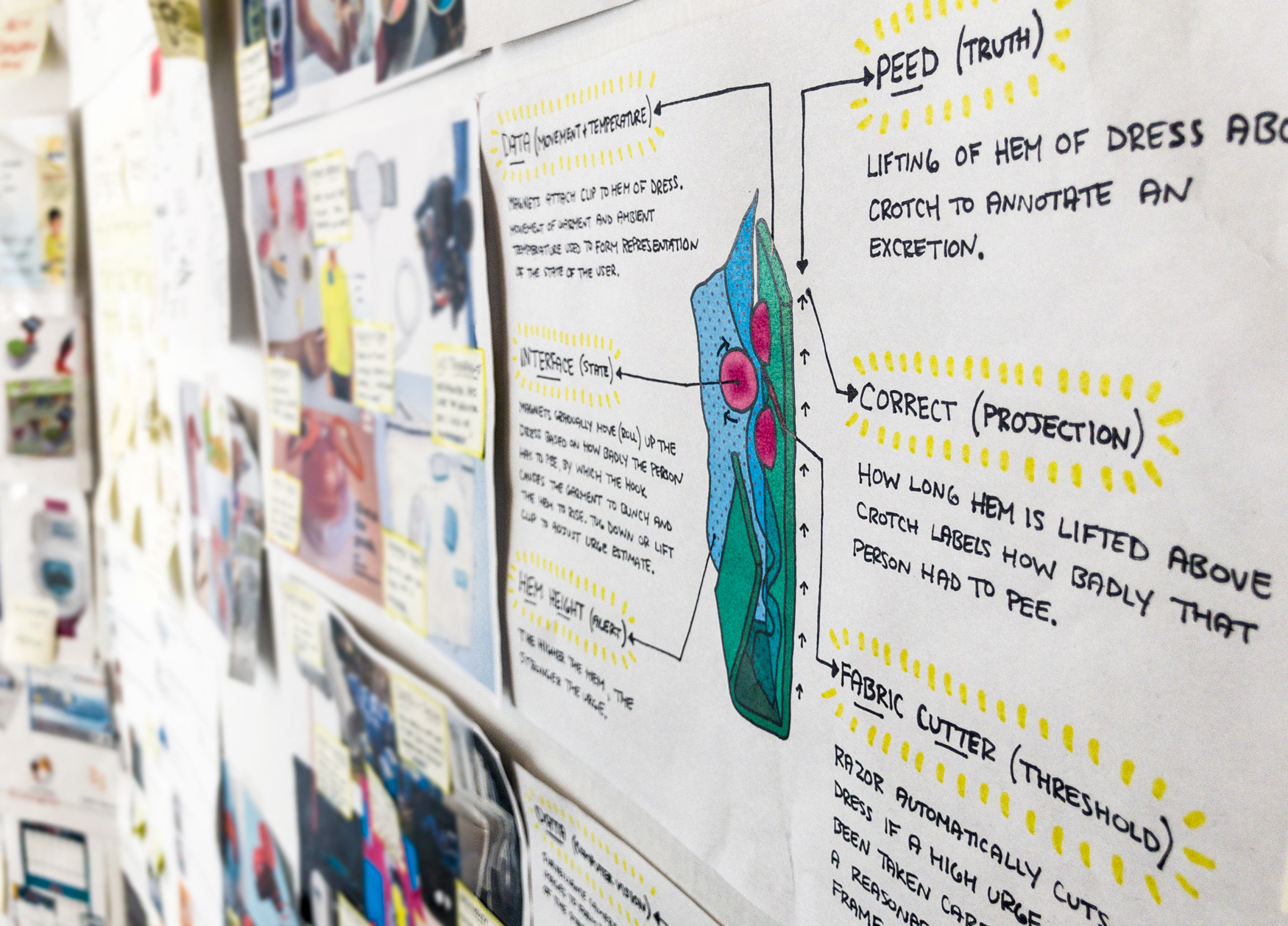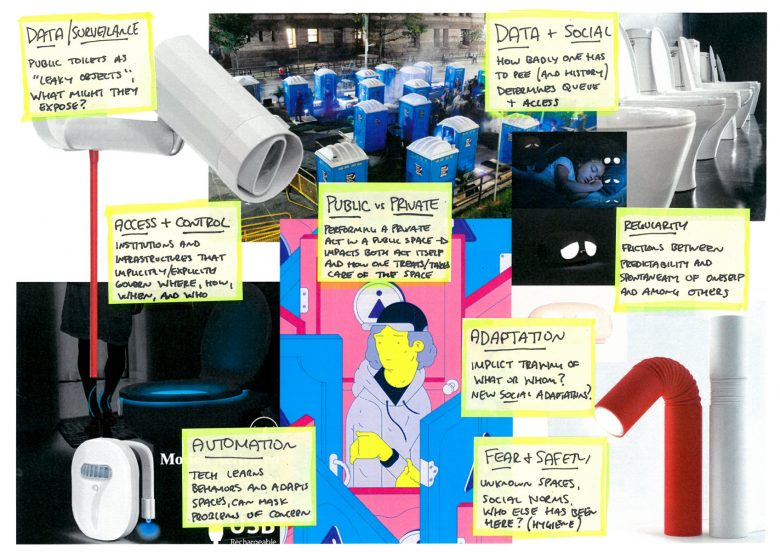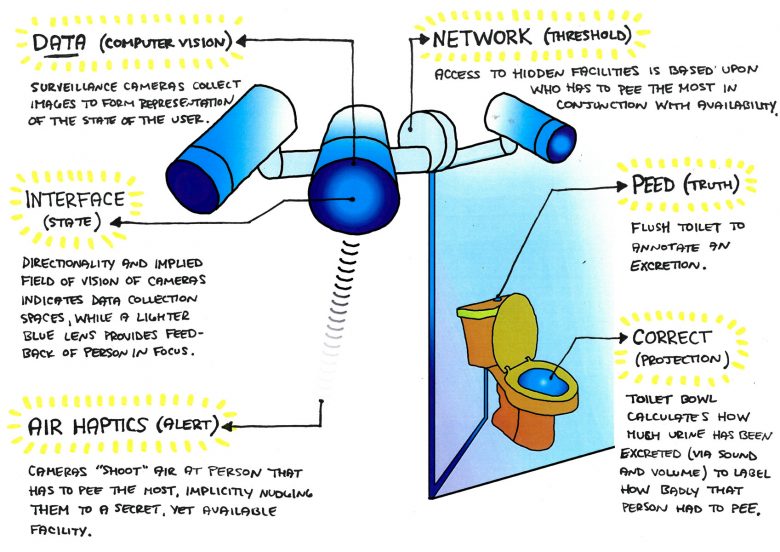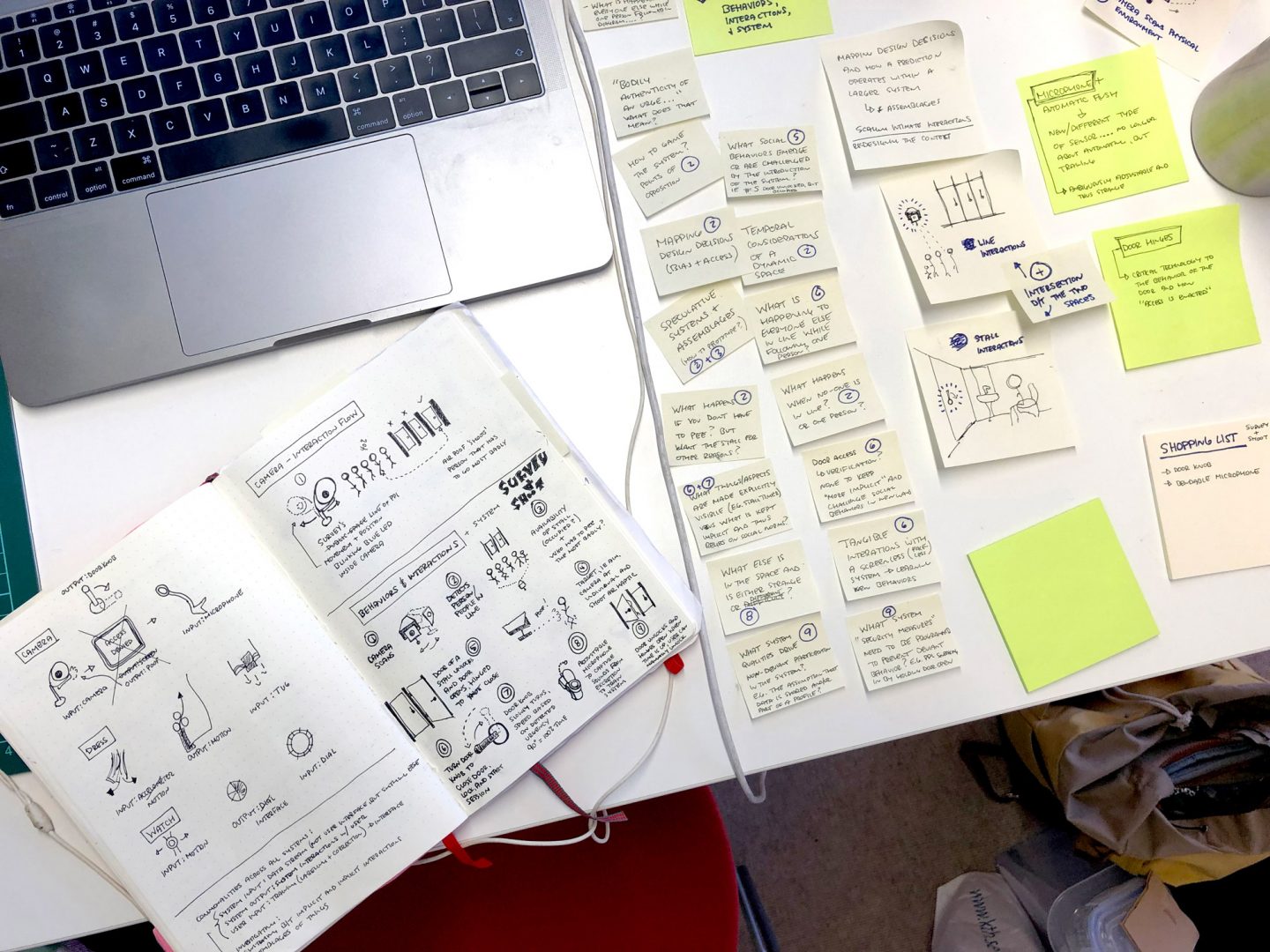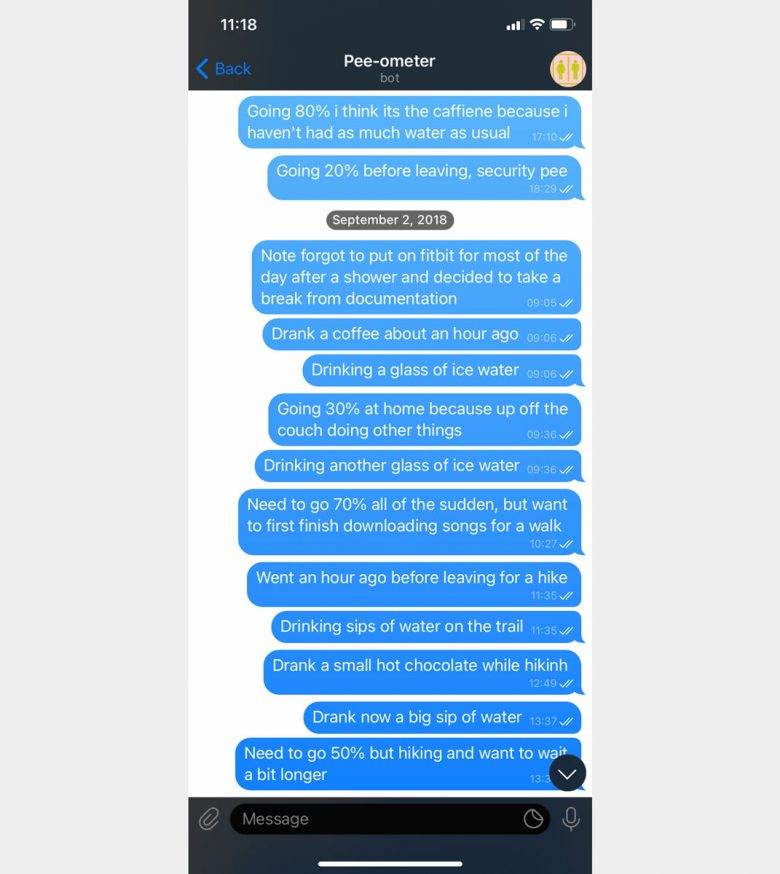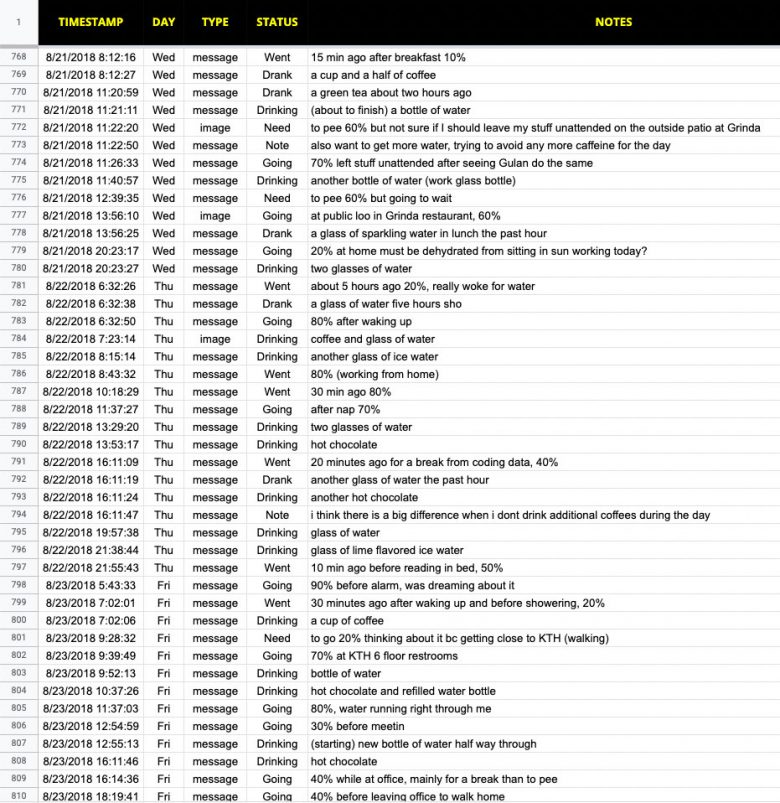With the increasing prevalence of data informing and revealing what humans do and how they do it, the boundaries of where data-driven technologies could and should participate in everyday lives are challenged. One such domain is intimate practices of bodily care, such as human excretion, in which designerly concerns extend from how intimate and somatic data can be put to use in responsible ways to how it can even be usable for interaction designers to consider and shape. This project recognizes going to the bathroom as a universal human bodily function, yet also an extremely individualistic and idiosyncratic in supporting somatic health and well-being for a diversity of experiences. To explore this, I have designed three provocations referred to as pee-ometers that predict when and how badly a person has to urinate as objects of utility and critique. While I am not necessarily advocating that there should be pee-ometers, the possibility of such devices simultaneously reveals and exasperates social tensions, relational frictions, and interactional loops with smart technology.
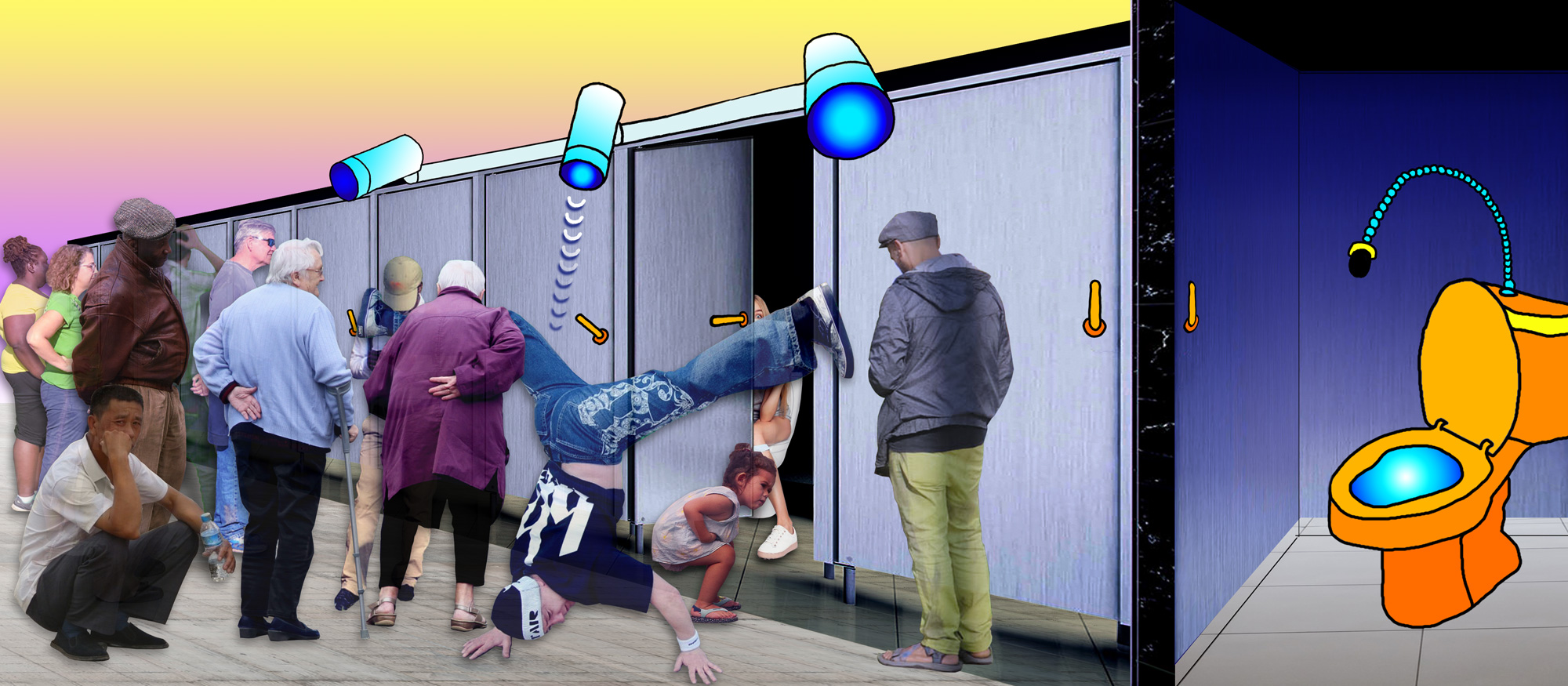
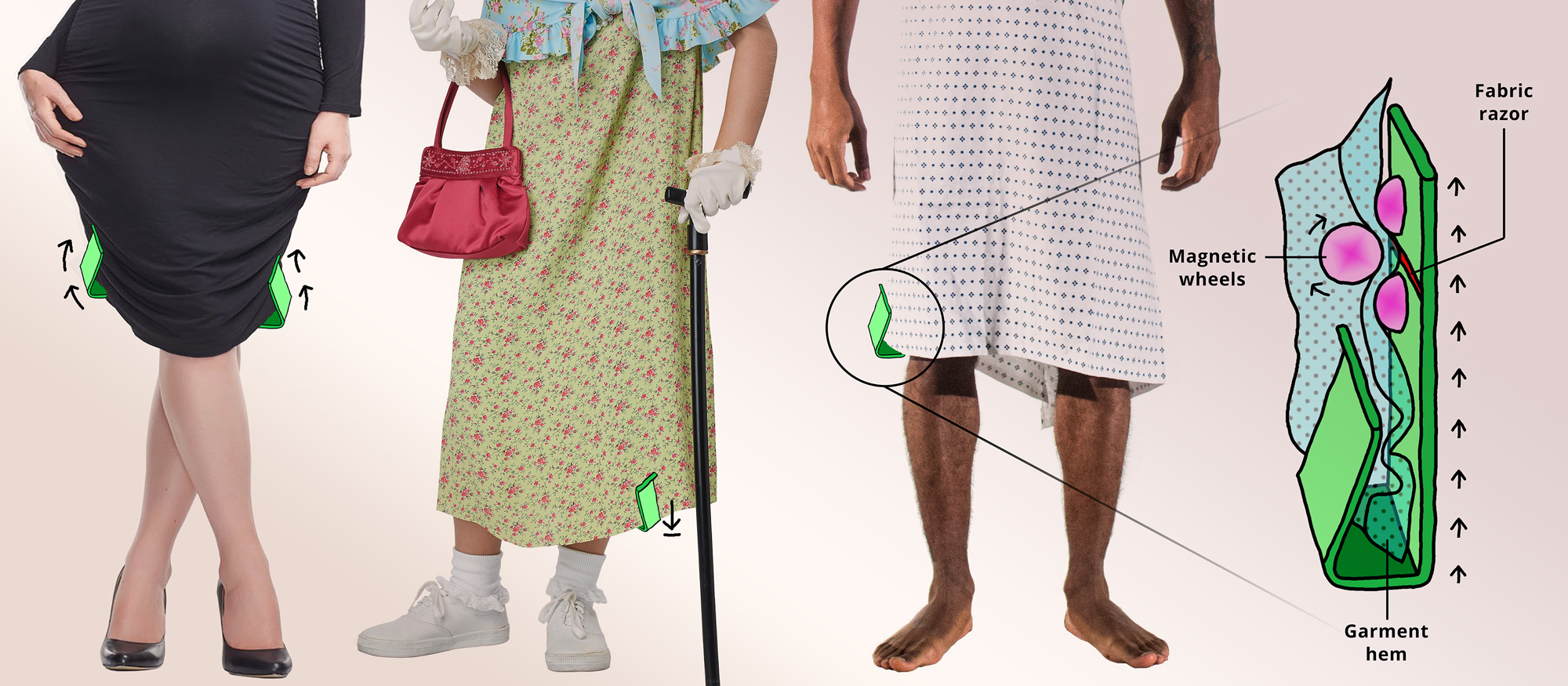
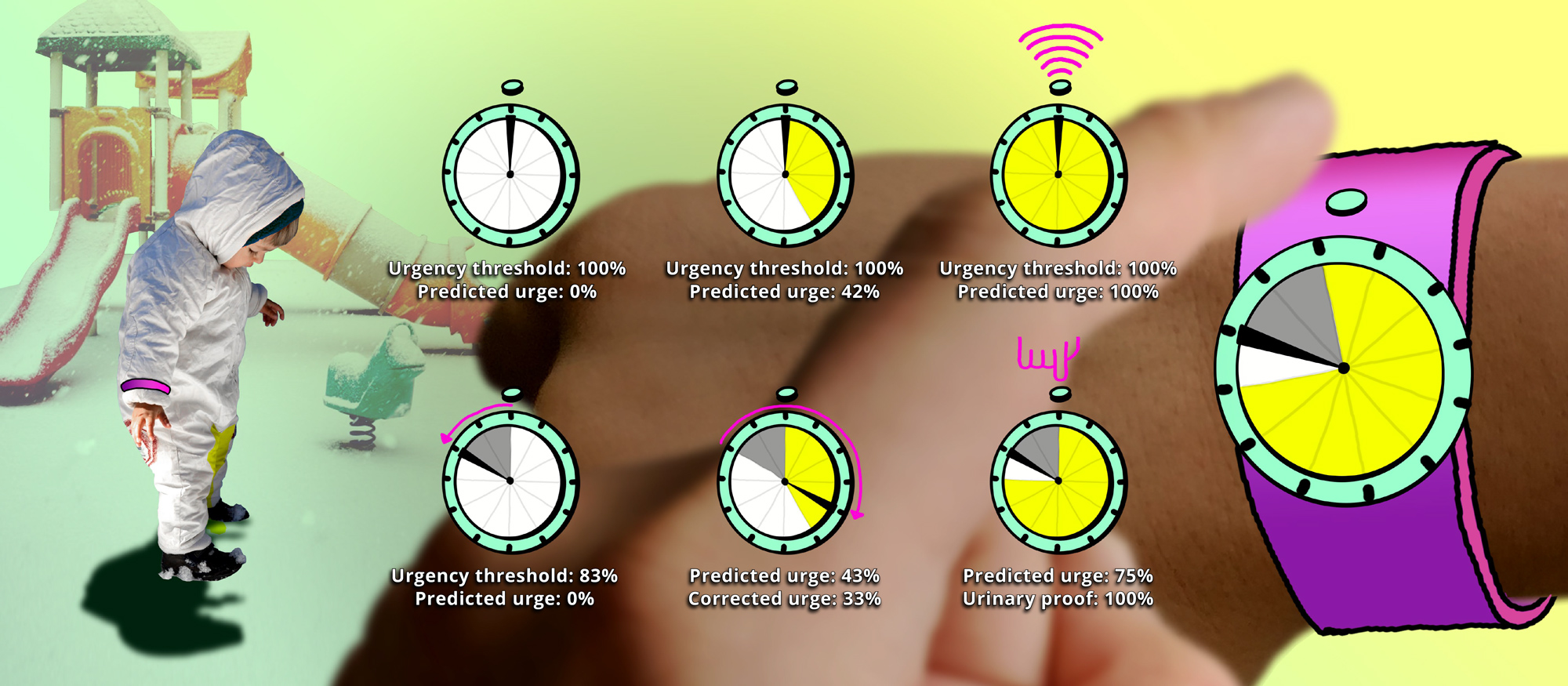
Design Process
Each provocation is grounded in a theme from a critique of over one hundred market products available for purchase to manage bodily excretion. The three themes are: a scheduled procedure, a gendered performance, and a dirty behavior. For each, theme and associated provocation, I created a series of annotated concept sketches and detailed scenerio of data-driven interactions as if it were a product going to market to reveal potential benefits, challenges, and implications.
Through the design process, I also autoethnographically documented my urinary habits for six months by messaging a custom bot in the Telegram chat application. Analysis of this process and data was used to reflect upon the three conceptual provocations, resulting in considerations for designers on the labeling of somatic data, the actuating of bodily experiences, and the scaling of intimate interactions.
Publications & Creative Outputs
Karey Helms. 2019. Do you have to pee? A Design Space for Intimate and Somatic Data. ACM Conference on Designing Interactive Systems (DIS 2019), San Diego, California, USA. (Best Paper Honorable Mention Award, top 2% of papers)
Featured on SpeculativeEdu as an exemplary practice of Speculative Design.
